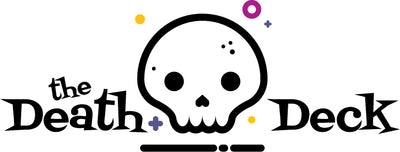By Guest Author: Corey Kearsley Co-Founder of Prepare Your Affairs

Katie and I both lost our previous spouses to cancer. We were in our 40s, raising kids, and doing our best to stay hopeful after a terminal diagnosis. While nothing can fully prepare you for the death of a partner, we learned—through painful experience—that many of the most agonizing challenges could have been eased with better planning and communication.
In the years since, we’ve met countless people navigating grief with unnecessary complications that could have been prevented. That’s why Katie and I co-founded Prepare Your Affairs, a resource to help families understand how to prepare for the unthinkable through a process we call the Five Pillars of Preparation:
-
Financial
-
Legal
-
Self-Care (including last wishes and body disposition)
-
Mental/Emotional/Spiritual
-
Practical (day-to-day living)
Most people focus on the first three—wills, powers of attorney, life insurance, advance directives, burial wishes, etc.—and stop there. But we learned that the emotional and practical pieces are just as critical. Following are ten such aspects of widowhood that caught us off guard. We like to call this our “not top ten” ways to prepare for widowhood.

-
Holidays and Birthdays
My wife, Kris, had a gift for making every celebration special. After she died, I felt immense pressure to recreate those traditions for our kids. I wish I’d paid more attention to her process of creating the magic. The guilt of falling short still lingers. -
Emotional Connection with the Kids
While I was the “coach and chauffeur,” Kris was the emotional anchor. After she passed, I struggled to support our kids emotionally in the way they needed. That gap hurt us all, and though we’re working on it, I wish I’d made more effort to grow in that role sooner. -
Her Final Wishes
We never had a clear conversation about what Kris wanted in her final days, which allowed me to justify making a few decisions for my benefit—dying in the hospital, burial instead of cremation, an open-casket viewing. Deep down, however, I’m certain those were things she probably wouldn’t have wanted and I still beat myself up over it. -
Talking About Death
We stayed so focused on beating the cancer that we never talked about what might happen if she didn’t. Katie and her husband, Dave, did. Katie describes it as one of the most intimate, powerful conversations they ever had. I wish I’d been brave enough to try. -
Organ Donation
Kris was a registered donor, but in the chaos of her final days, no one brought it up, and I didn’t think to advocate for it. Maybe her cancer would’ve disqualified her—but I wish I had honored her wishes and asked. -
Signs of Impending Death
No one told me what to expect. If I’d understood the signs, I would have done more to get Kris home to die—something I believe she would have wanted. Also, I would have contacted my two kids at college earlier. Instead, they missed saying goodbye by ten minutes. I still carry that heartbreak. -
Widow’s Fog
Katie, like many, experienced “widow’s fog”—a mental haze that can last weeks or months. It’s a cruel irony: the time you’re least able to think clearly is when you’re expected to make huge decisions. Without a plan in place, that vulnerability can lead to costly mistakes, both emotional and financial. -
Work Commitments
I returned to a job that required frequent travel, leaving my grieving teen daughter home alone. She was responsible and capable—but she was also mourning. I sometimes wonder what she needed from me that I didn’t give her. -
Burial Plot Decisions
I hadn’t given a moment’s thought to where Kris would be buried. Time was tight, and I nearly chose a location that felt wrong and was way over budget. Luckily, a friend mentioned a peaceful community cemetery nearby—and that’s where we found the right place, at the right price. -
Keepsakes and Messages
When the kids came home after Kris died, they immediately searched for notes, keepsakes—anything left behind for them. There were none. She had so many hobbies, and I was left to guess what to do with her things. I tried my best, but I still wonder if I got it right.
Grief is hard enough. Don’t let preventable regrets make it harder.
You don’t need to come up with all the answers at once. Start small. Ease into the conversations now by playing a round or two of The Death Deck. Have fun with it and see where the discussions take you. Take notes. Then build from there. You can never start too early, but someday it will be too late.
Having a plan will provide peace of mind and clarity when a diagnosis or accident turns life into a chaotic blur. You’ll avoid the pain of figuring it out alone and under duress.
Cheers,
Corey Kearsley
Co-Founder, Prepare Your Affairs
